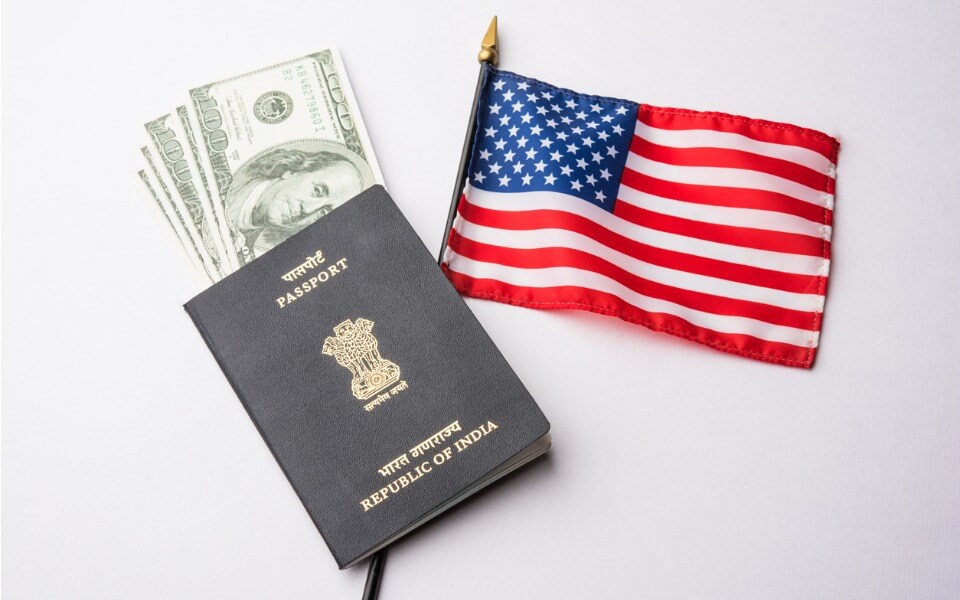
Indians may soon be able to get H-1B visas stamped within the US

Indians living in the US can soon get their H-1B visas stamped within that country. To make the process easier and “dignified,” the President’s Advisory Commission on Asian Americans, Native Hawaiians, and Pacific Islanders unanimously approved a recommendation for the said move at the White House on Wednesday.
If President Joe Biden accepts the recommendation, it will come as a big relief to thousands of foreign professionals, particularly Indians. Currently, they must apply for a visa stamp at a US consulate or embassy abroad to have their H-1B status activated or reactivated.
Also read: H-1B visa holders are among the highest paid in US, says report
What is the H-1B visa?
The H-1B visa is for non-immigrants. It allows US companies to employ foreign employees in specialised occupations that require theoretical or technical expertise. Especially, technology companies rely on it to hire thousands of employees every year from countries such as India and China.
However, many of these employees face uncertainty due to long visa application appointments, whether for a new one or renewal of the existing visa. In countries like India, the current waiting period is more than a year.
This situation prompted Indian American Ajay Jain Bhutoria, a member of the commission, to move a recommendation. Bhutoria is a successful entrepreneur based out of Silicon Valley. He has been a supporter of President Biden from day one of the latter’s campaign.
“As part of our immigration process, H-1B visa holders are given the opportunity to work in the United States, live here, and contribute to the growth of our economy, innovation, and economic development,” Bhutoria told members of the commission at the meeting.
Also read: United States reaches 65,000 H-1B visa cap for 2022: USCIS
The argument
Appealing to the members’ better nature, he told them how people lose jobs or are forced to stay away from their loved ones in their home countries in fear of not being able to renew their visas on time.
“There (have been) situations where a lot of people, whose parents have been in (the) ICU or in a critical condition, or during the death of a parent, but they could not travel back to the home country” fearing a delay in the visa appointment there, he said at the meeting the White House telecast live.
“In India right now, the waiting period is 844 days to get a visa appointment, which is like two years or more. There’s a similar situation in Pakistan, Bangladesh, and many other countries. China is much better right now. So, they cannot get an appointment, cannot get the stamping done, and get stuck,” Bhaturia explained.
Also read: Biden govt allows work permits for spouses of H-1B visa holders
“What happens then, they potentially lose the job. Wife and kids are here, separated, and with no means to support themselves. Or, many times, (the) spouses don’t drive. A lot of these…situations create a disruption in their life, while they were given the full opportunity to work here legally,” he argued.
This recommendation
“This recommendation is to request USCIS to allow the stamping in the US. Alternatively, USCIS should also consider providing advanced travel documents to these visa holders when they will travel out of the country with expired visa stamping so that they can re-enter the US without having to get (the) re-stamping (done) in their home countries,” Bhutoria said.
Therefore, the recommendation is for the USCIS (US Citizenship and Immigration Commission) to update its policy, as it was once done many years ago. “It was done previously. It was stopped,” Bhutoria added.
Also read: Biden admin has appointed 130 Indian Americans to key positions, says WH official
An “issue of family separation and dignity”
Chief Commissioner Sonal Shah, also an Indian American, said it was an issue of family separation and dignity of H-1B visa holders. “That’s an easy way to put fear into families,” she said.
“One of the comments I would make here is that I think this is overall in the commission’s thinking about (the) dignity for people, and how (to) make it an easier and dignified process…. It’s one thing to have rules; it’s another to not hold the dignity of families and individuals,” Shah added.
(With agency inputs)

